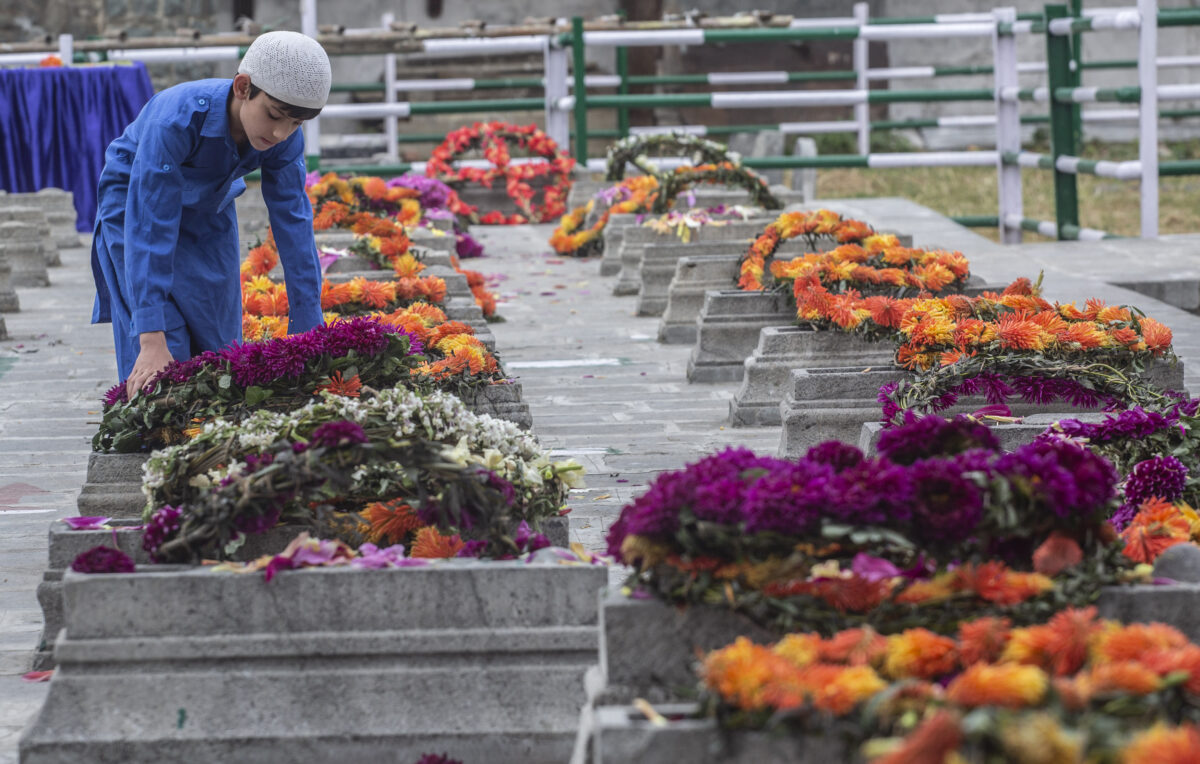With July 13 nearing, the National Conference renews its demand to reinstate ‘Martyrs’ Day’ as an official holiday—sparking political tensions, historical reckonings, and ideological rifts across Jammu & Kashmir.
By: Javid Amin | Srinagar | 11 July 2025
As the Kashmir Valley inches closer to July 13, the political landscape is heating up. The National Conference (NC), one of Jammu & Kashmir’s oldest political parties, is making a strong push to restore ‘Martyrs’ Day’—a date once enshrined in the official holiday calendar but removed after the abrogation of Article 370 in 2019.
For decades, July 13 was observed across J&K as a day of collective remembrance, marking the killing of 22 civilians in 1931 by Dogra troops outside Srinagar Central Jail. The day was long associated with Kashmir’s political awakening and was honored with state ceremonies, wreath-laying at the Martyrs’ Graveyard (Naqshband Sahib), and calls for justice and dignity.
But since the constitutional changes of 2019, which stripped J&K of its special status and reorganized it as a Union Territory, ‘Martyrs’ Day’ was dropped from the official calendar, fueling concerns over historical erasure and identity dilution.
NC’s Political Revival Around July 13
The National Conference, currently reclaiming some political space, has begun a renewed campaign to reinsert July 13 into public memory and governance.
Led by General Secretary Haji Ali Muhammad Sagar, the NC recently held a high-level review meeting to:
- Finalize plans for wreath-laying ceremonies at Naqshband Sahib
- Send a formal request to Lt Governor Manoj Sinha for reinstating July 13 and December 5 (Sheikh Abdullah’s birth anniversary) as state holidays
- Notify the district administration and police of their proposed gathering at the graveyard
A party spokesperson stated:
“July 13 is not just a date—it’s a symbol of resistance, dignity, and sacrifice. Reviving it means reconnecting with our people’s soul.”
Political Firestorm: Who’s Saying What?
As expected, the NC’s initiative has triggered a sharp response across the political aisle.
BJP: ‘Martyrs or Rebels?’
The Bharatiya Janata Party (BJP) has vehemently opposed any attempt to officially recognize July 13, labeling the 1931 protesters as “rebels” who challenged the Dogra monarchy.
A BJP leader from Jammu commented:
“This is not martyrdom. These were lawbreakers who wanted chaos. We cannot glorify anarchy.”
The BJP’s opposition reflects its broader ideological stance of redefining J&K’s history through a nationalist and integrationist lens.
PDP: ‘Too Little, Too Late’
The People’s Democratic Party (PDP), led by Mehbooba Mufti, offered a mixed response—supporting the holiday’s return but criticizing the NC’s past silence.
“When PDP brought a resolution to restore Martyrs’ Day, NC didn’t stand by us. Now, when convenient, they want to lead.”
Apni Party: Conditional Support
Syed Mohammad Altaf Bukhari’s Apni Party backed the proposal but used the moment to advocate for wider reforms, including:
- Revising the domicile law
- Addressing employment discrimination
- Protecting cultural identity and historical memory
“July 13 must be restored, but it’s only one part of a larger project of justice and reconciliation.”
What Makes July 13 So Politically Charged?
July 13, 1931, saw 22 Kashmiri Muslims gunned down by Dogra troops while protesting outside Srinagar Central Jail, where Abdul Qadeer Khan, an anti-monarchy activist, was on trial. As one protester was killed, another took his place to continue the call to prayer.
This episode became a defining moment of Kashmir’s political history, sparking a freedom movement and laying the groundwork for future political mobilization under the Muslim Conference (later the National Conference).
Its erasure post-2019 is seen by many as part of a deliberate attempt to sanitize or reframe Kashmir’s political narrative, one that downplays regional grievances and centers New Delhi’s control.
Beyond Symbolism: What Restoration Means
For the NC and others, restoring July 13 is more than nostalgia—it’s about cultural legitimacy and historical continuity. Critics argue that without such gestures, Kashmir’s distinct political identity risks being subsumed in post-Article 370 administrative normalcy.
Yet for New Delhi and its allies, reinstating the holiday could be seen as conceding ground to a narrative they’ve sought to displace.
What Happens Now?
With July 13 just days away, two outcomes are possible:
- The Lt Governor’s office approves the NC’s proposal, signaling a shift toward reconciliation.
- The holiday is denied, and the NC proceeds with unofficial commemorations, setting up symbolic defiance.
Either way, this moment is politically loaded. It raises essential questions:
- Who decides what history gets honored?
- Can cultural healing happen without acknowledging past wounds?
- Is Kashmir’s political autonomy truly dead—or just dormant?
Expert Voices
Dr. Nazir Ahmad, historian:
“You can remove a date from the calendar, but you can’t erase memory. The question is—how will memory shape the future?”
Professor Shabnam Qureshi, political scientist:
“July 13 is a litmus test. Not just for NC’s credibility, but for the Union government’s willingness to engage with history honestly.”
Summary
- NC intensifies campaign to restore July 13 as Martyrs’ Day
- Sends official request to LG Sinha, plans graveyard visits
- BJP opposes, PDP criticizes NC’s timing, Apni Party calls for wider reforms
- Debate reflects deep ideological divides over Kashmir’s identity, governance, and history



